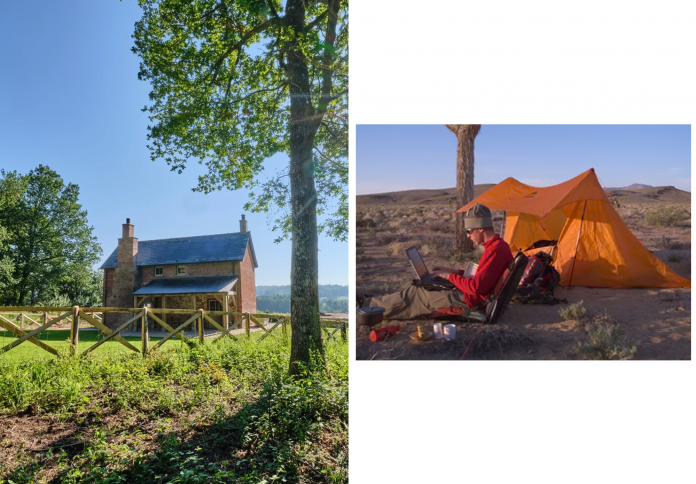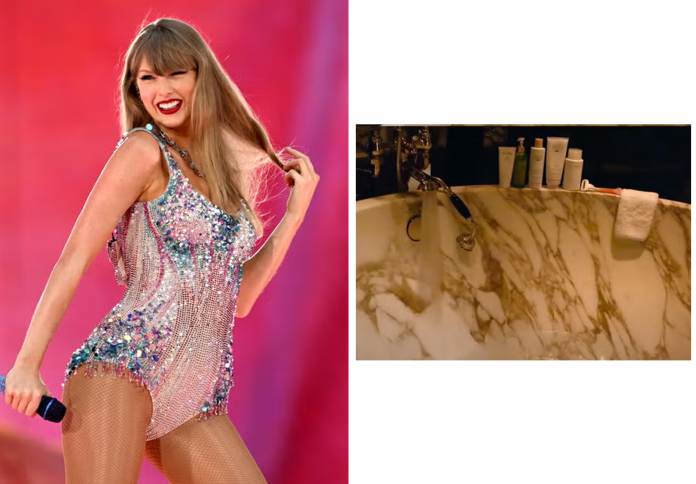The term “off-grid” has long evoked images of austere cabins, candlelit evenings, and total, blissful severance from the clamour of modern life. However, a new breed of country retreat is challenging this definition. These properties, such as the now-famous Van Cottage nestled in the pastoral west of England, masterfully achieve true energy independence, relying on solar power and wood-fired heat for self-sufficiency. Yet, they simultaneously boast the ultimate modern luxury: fast broadband, ample USB ports, and reliable mobile signal. This emerging trend presents a compelling paradox for the modern traveller, who seeks the environmental and aesthetic purity of the wild but cannot, or will not, abandon the professional and personal necessity of connectivity. The result is a hybrid escape—a physical pioneering spirit married to a digital safety net—forcing a reconsideration of whether true escapism today is defined by cutting the power cord, or merely the power bill.
The Architecture Of Self-Sufficiency
The defining characteristic of this new wave of retreats is a genuine commitment to environmental self-sufficiency. These havens are not merely marketing slogans; they are often engineered to operate entirely outside of conventional utility networks. Van Cottage, situated amidst the fields and forests of Herefordshire, serves as a prime example of this structural independence.
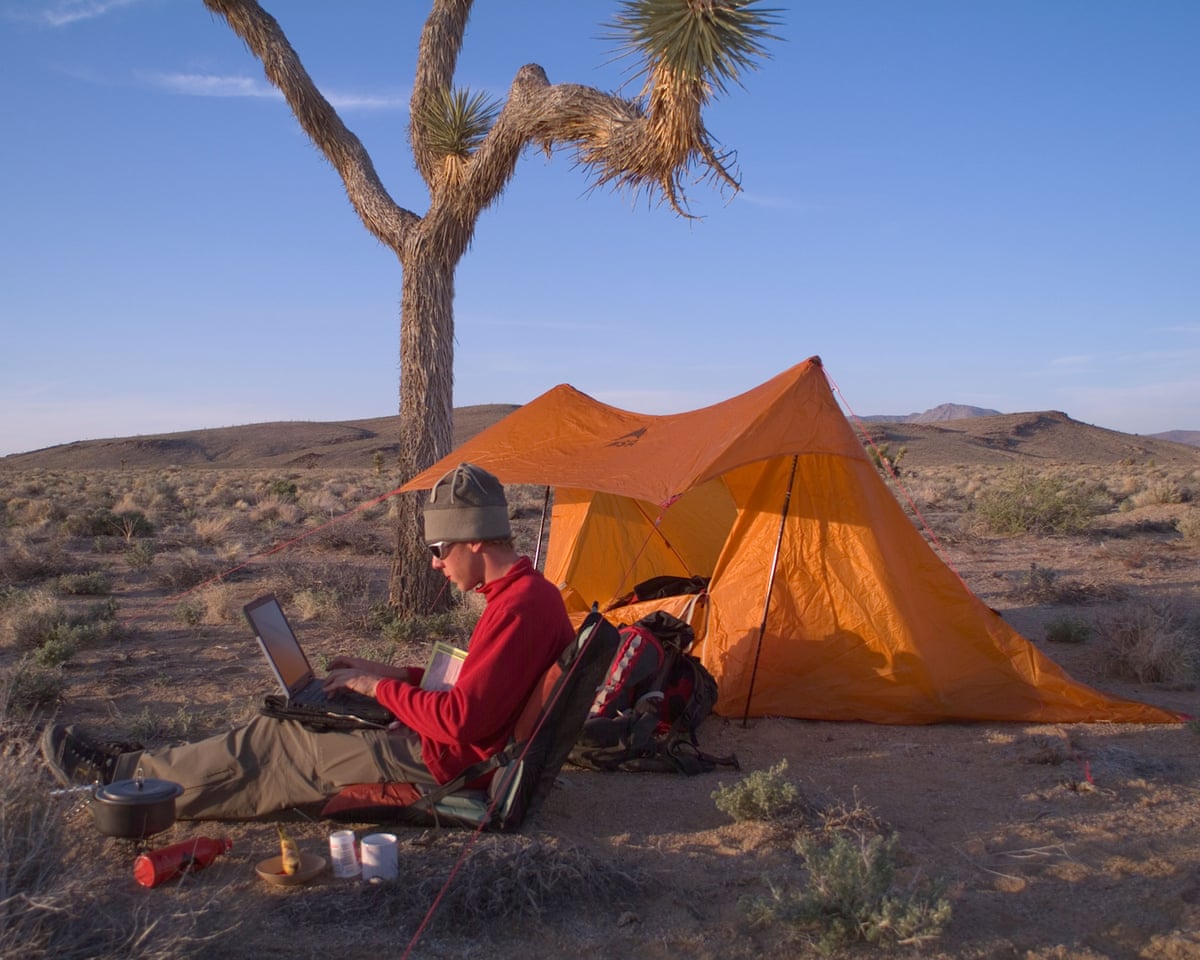
From the outside, the cottage perfectly embodies the pioneer spirit, featuring a crooked stone chimney, a metal-roofed veranda, and a detached brick dunny nestled in a nearby glade. Its heart lies in its reliance on natural resources: a renovated system provides power through solar panels, while the warmth and ability to cook come from a traditional wood-fired range and an accompanying wood burner in the living room. This commitment extends to the outdoor amenities, including a wood-fired hot tub offering views over the surrounding carmine-coloured fields and billowy woodland. The intent is clear: to offer a profound, tangible connection to the land and the satisfying labour of keeping the home fires burning, replacing the existential drain of modern life with the simple, rewarding tasks of survival.
The Connectivity Conundrum
Despite its deep-rooted energy independence, the digital availability of these retreats has ignited a pointed debate among traditionalists. Critics are quick to question the fundamental integrity of the “off-grid” label when a property openly advertises its lightning-fast broadband and reliable phone signal. The contention is philosophical as much as practical: if the true spirit of going off-grid is to disconnect and step away from digital dependence, can a retreat that facilitates doomscrolling and remote work truly claim the title?
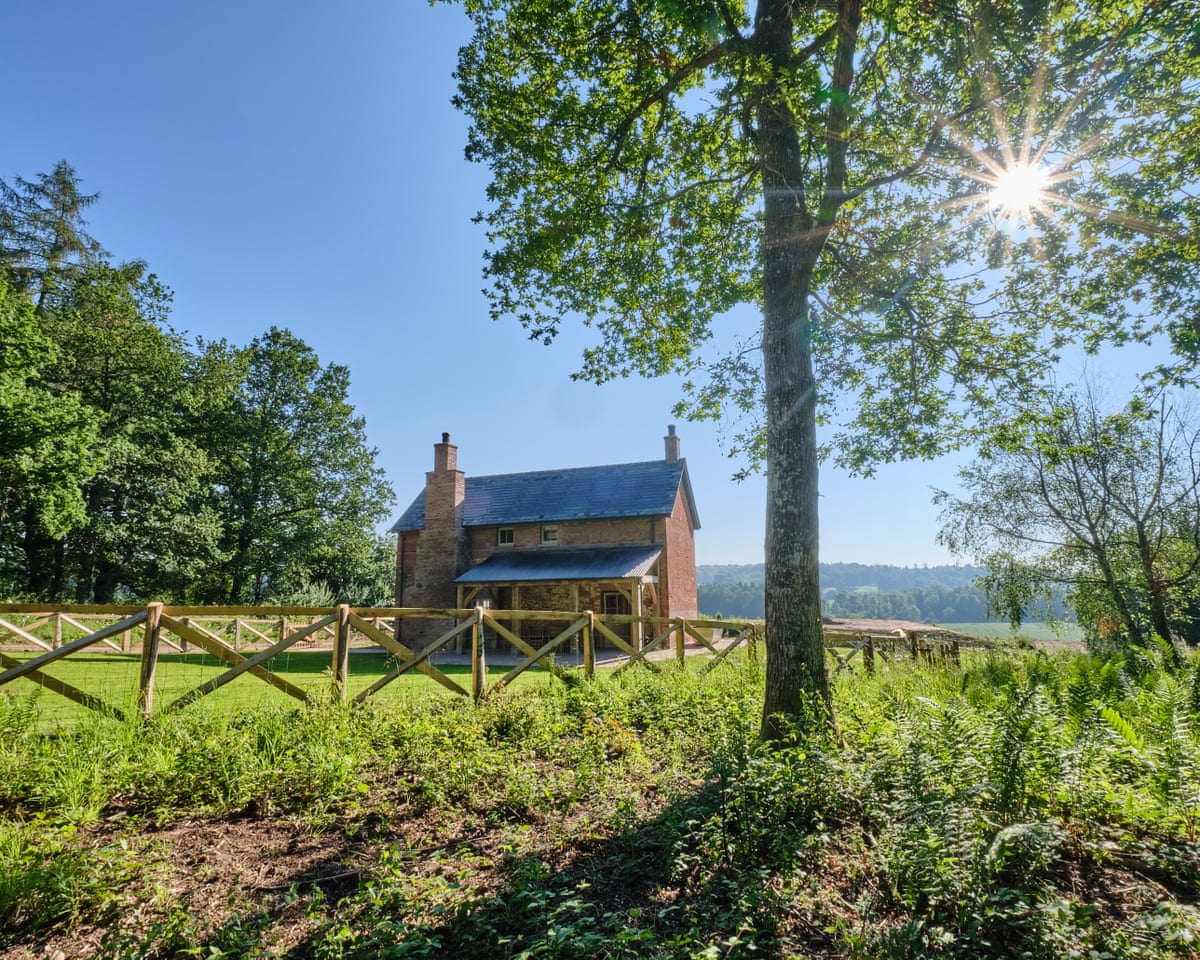
A highly circulated letter to the editor following an article on Van Cottage succinctly captured this viewpoint. The writer chastised the promotion of a sanctuary that, while boasting of its power self-reliance, also offered “copious USB points” and connectivity that would rival a city coffee shop. This critique suggests that “off-grid” must signify a total detachment—a temporary severing of the digital leash. For the purist, this is not a retreat into the wild, but simply a remote, aesthetically pleasing, and highly efficient office, where the solitude of nature is merely a backdrop for an uninterrupted online life. The conflict highlights a modern tension: the desire to be environmentally conscious and immersed in nature, yet instantly accessible to the world.
Escapism With A Safety Net
The immense popularity of these connected-but-sustainable retreats reveals a compelling truth about the modern traveller: many seek the aesthetic of remoteness without its total, inconvenient reality. This hybrid model offers a perfect balance—a carefully controlled, curated form of escapism. Travellers can enjoy the meditative quality of keeping a wood-fired range alight or birding with no television to fill the gaps, while knowing that a critical email or family emergency can still be handled instantly.
For a generation defined by the pressures of a 24/7 work culture, the true luxury is not the absence of the internet, but the choice to ignore it. These retreats allow guests to substitute “doomscrolling” for tangible, grounding activities like stoking a fire, while keeping the laptops, though unopened, within easy reach. The cottage becomes a temporary liminal space—a place where the guest has full autonomy over their digital presence, enjoying the psychological benefits of solitude and nature without the existential panic of being truly unreachable. It is an acknowledgment that modern anxiety is best soothed by intentional presence, not forced isolation.
The Abundance Of The Herefordshire Haunt
Beyond the digital debate, the retreat experience offers a profound immersion in the quiet abundance of the English countryside. The setting of Van Cottage, atop a ridge overlooking the fields of Herefordshire, grounds the stay in a deeply local experience. The isolation is picturesque, but not desolate; nature is present, but accessible.
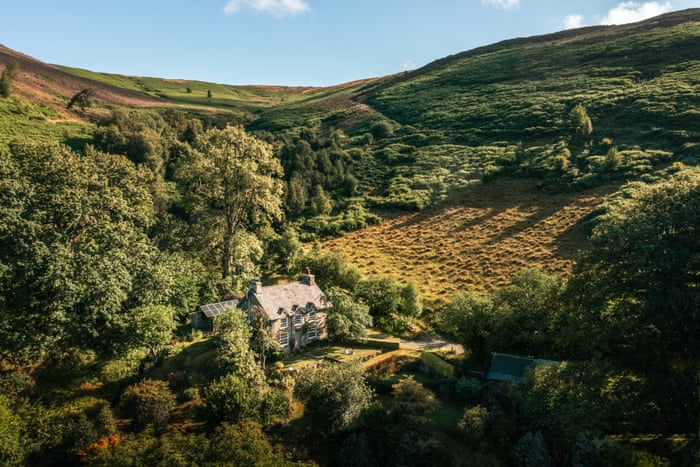
The immediate surroundings offer a “cacophony of nature,” where mundane journeys are interrupted by the spectacular sight of male peacocks jousting in the lane, providing unexpected moments of vivid, unscripted drama. This connection to the land is amplified by the opportunity to forage and cook with exceptional local produce. Local suppliers provide grass-fed Hereford beef, rare-breed pork, and a range of local cheeses, beers, and wine. The stay thus becomes a deeply sensory and localized culinary experience, contrasting the highly efficient modernity of the internet connection with the timeless pleasures of a rich, rural landscape. Activities such as fishing, hiking, and exploring historical sites like Skenfrith Castle—just over the border—fill the days, proving that while one is able to be online, the surrounding beauty provides ample reason not to be.
The Future Of “Off-Grid” Living
The rise of the “off-grid but online” retreat is a definitive sign of how the concept of self-sufficiency is evolving in the 21st century. It suggests that the definition of “off-grid” is fragmenting: for some, it is now exclusively an environmental statement—a commitment to energy independence and sustainability. For others, it remains a spiritual mandate—a total digital detox.
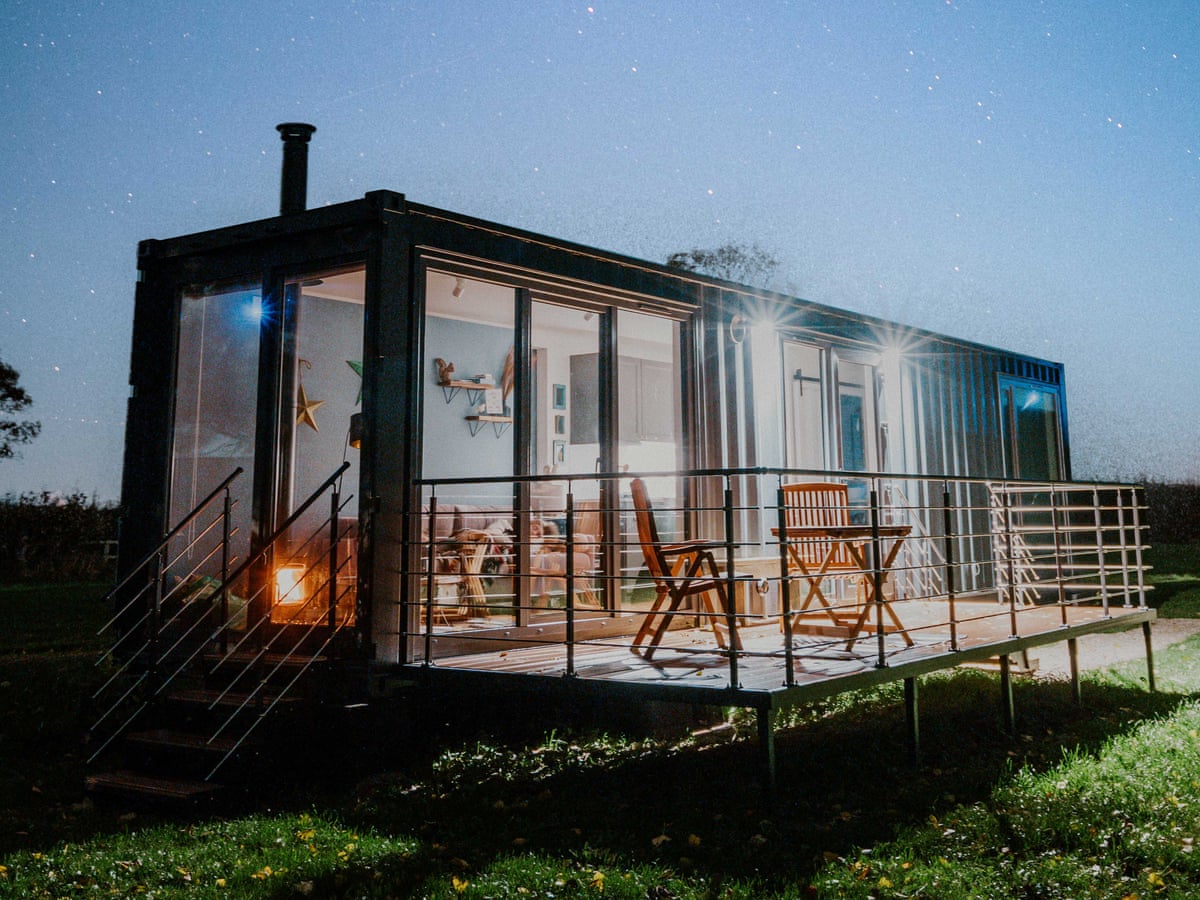
However, the hybrid model, combining solar power with fibre optic speed, is likely to become the standard for luxury escapism. It caters to the mass market that desires to mitigate their carbon footprint and engage with nature’s beauty while retaining professional functionality. This new market is seeking splendid isolation that can be instantly shared and maintained via video call. Ultimately, these retreats are teaching us that true freedom may not lie in eliminating technology, but in reclaiming the power to control when, and how, we engage with it. They offer a powerful, contemporary solution: the ability to live sustainably in the natural world, while ensuring the grid of human connection—in its broadest sense—is never truly broken.
